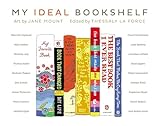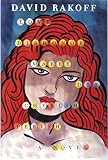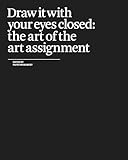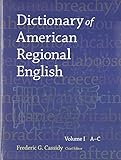
Two years ago I wrote a holiday gift guide for writers after I realized that I had a drawer full of blank journals that I had never used, all given to me by friends and family wanting to support my writing habit. I knew I couldn’t be the only writer with this particular surplus, so I decided to draw up a list of items that writers might actually use. I repeated the exercise in 2012, coming up with ten new suggestions. This year’s list is an updated version of those two lists, now all in one place with a few new items added to the end, for a grand total of 25 writer-friendly gifts.
1. A Cheesy New Bestseller

 One of the best presents I ever got was a hardcover copy of The Nanny Diaries from my roommate. I really wanted it, but there were over 300 people on the library’s waiting list and I wasn’t going to shell out $25 for something I was unlikely to read twice. The funny thing was that I never told my roommate that I wanted to read The Nanny Diaries. She just guessed that I had a secret craving for it. Of course, it can be as hard to gauge your friend’s taste in pop culture as it is in high culture, but it’s better to guess wrong in the pop culture arena, because your friend is more likely to exchange it for something she likes better. Whereas, if you give her Gravity’s Rainbow, she’ll keep it for years out of obligation.
One of the best presents I ever got was a hardcover copy of The Nanny Diaries from my roommate. I really wanted it, but there were over 300 people on the library’s waiting list and I wasn’t going to shell out $25 for something I was unlikely to read twice. The funny thing was that I never told my roommate that I wanted to read The Nanny Diaries. She just guessed that I had a secret craving for it. Of course, it can be as hard to gauge your friend’s taste in pop culture as it is in high culture, but it’s better to guess wrong in the pop culture arena, because your friend is more likely to exchange it for something she likes better. Whereas, if you give her Gravity’s Rainbow, she’ll keep it for years out of obligation.
2. Good lipstick
Writers are often broke. If they have $30 to spare, they are going to spend it on dinner, booze, or new books. Not lipstick. But writers are pale from spending so much time inside and could use some color. Make-up can be a tricky gift because it suggests that you think your friend’s face could use improvement. That’s why it’s important to go to a department store make-up counter and buy something frivolous and indulgent, like a single tube of red lipstick or some face powder or blush in a nice-looking case.
3. Foreign language learning software
Most writers wish they knew more languages. It can also be relaxing to be rendered inarticulate in a new language, in that it offers a real break from personal expression, nuance, and irony. At the same time, learning a new language sharpens your native tongue, and expands your vocabulary. It’s sort of like cross training.
4. A Bathrobe
John Cheever famously donned a suit every morning in order to write. But as Ann Beattie revealed, and as a generation of bloggers already knows, most writers wear awful clothing while they are working. Help your writer friend out by giving her a beautiful robe to cover up her bizarre ensembles. Even if she already has one, she probably hasn’t’t washed it in a long time, and could use another.
5. A Manicure
I bite my nails, especially when I’m writing. I’ve noticed that a lot of other writers have suspiciously short nails, too. Manicures help. Also, manicures get writers out of the house and out for a walk.
6. “Freedom”, the internet-blocking software
“Freedom” is a computer program that blocks the internet on your computer for up to eight hours. I don’t understand why it’s effective, since it’s relatively easy to circumvent, but as soon as I turn it on, I stay off the internet for hours at a time. (There is also a program called “Anti-social”, which only blocks the social parts of the internet, like Facebook and Twitter.)
7. Booze, coffee, and other stimulants
Find out what your friend likes to drink and buy a really nice version of that thing. If your friend is a coffee or tea drinker, find out how he brews it and buy him really good beans or tea leaves. Even better, find out what cafe he frequents and see if they sell gift certificates.
8. Yoga Classes
Yoga does wonders for anxiety, depression, and aching backs, three afflictions common in writers. Most yoga classes also incorporate some kind of meditation practice, which is also very helpful.
9. A pet
This is not a gift to be given casually and definitely not as a surprise, but if you live with a writer and you’ve been on the fence on whether or not to get a furry companion, consider this advice on how to be more prolific, from Muriel Spark: “If you want to concentrate deeply on some problem, and especially some piece of writing or paper-work, you should acquire a cat… The effect of a cat on your concentration is remarkable, very mysterious.” Another prolific writer, Jennifer Weiner, recommends dogs on her website, where she’s posted a list of tips for aspiring writers. Dogs, she explains, foster discipline, because they must be walked several times a day. Furthermore, Weiner notes, walking is as beneficial for the writer as it is for the dog: “While you’re walking, you’re thinking about plot, or characters, or that tricky bit of dialogue that’s had you stumped for days.”
10. Freezable homemade foods: casseroles, soups, breads, and baked goods.
This is a potentially Mom-ish gift, but if your friend is on deadline, a new parent, or just far from home during the holidays, a home-cooked meal could be a lovely gesture. I emphasize freezable because it should be something that you make at home and leave with your friend to eat later. If you can’t cook, buy a pie.
11. A hand-written letter
When I first recommended this gift, two years ago, I pointed out that a lot of writers still get rejection letters through the U.S. mail, so it would be a nice change of pace to receive a note from a friend. But over the past couple years, I’ve noticed that magazines are sending most of their rejections via email. However, that simply means that a handwritten card would be an even more astonishing and special occurrence.
12. The Gift, by Lewis Hyde
 The Gift examines the role of artists in market economies and is the perfect antidote to all the earnest, helpful guides that aim to teach writers how to be more publishable, saleable, and disciplined. Where most writing guides make writers feel they could succeed if only they were more productive and efficient, The Gift argues that productivity and efficiency are market-based terms that have little meaning in gift economies, which is where many creative writers exchange and share their work. Another way of putting it is to say that The Gift makes writers feel less crazy.
The Gift examines the role of artists in market economies and is the perfect antidote to all the earnest, helpful guides that aim to teach writers how to be more publishable, saleable, and disciplined. Where most writing guides make writers feel they could succeed if only they were more productive and efficient, The Gift argues that productivity and efficiency are market-based terms that have little meaning in gift economies, which is where many creative writers exchange and share their work. Another way of putting it is to say that The Gift makes writers feel less crazy.
13. A Bookshelf Portrait
 If every bookshelf is a portrait of its owner, then why not commission an actual portrait of a bookshelf? That’s what Your Ideal Bookshelf allows booklovers to do, offering hand-painted portraits of “the books that changed your life, that defined who you are, that you read again and again.” If that seems like too much pressure, you can purchase prints of other people’s ideal bookshelves, as well as drawings of ideal bookshelves organized by genre, subject, and author. Harry Potter fanatics can find portraits of the entire series, while home cooks can choose from several different shelves of culinary classics. The creators of Your Ideal Bookshelf have also produced a book, My Ideal Bookshelf, which showcases the favorite bookshelves of a variety of writers and artists, including Patti Smith, Junot Diaz, Miranda July, and Judd Apatow.
If every bookshelf is a portrait of its owner, then why not commission an actual portrait of a bookshelf? That’s what Your Ideal Bookshelf allows booklovers to do, offering hand-painted portraits of “the books that changed your life, that defined who you are, that you read again and again.” If that seems like too much pressure, you can purchase prints of other people’s ideal bookshelves, as well as drawings of ideal bookshelves organized by genre, subject, and author. Harry Potter fanatics can find portraits of the entire series, while home cooks can choose from several different shelves of culinary classics. The creators of Your Ideal Bookshelf have also produced a book, My Ideal Bookshelf, which showcases the favorite bookshelves of a variety of writers and artists, including Patti Smith, Junot Diaz, Miranda July, and Judd Apatow.
14. Bookends
Bookends are underrated. Not only do they keep books from falling off the shelf, they allow you to make a bookshelf anywhere — on a desk, in a windowsill, or atop a bedside table. Even ugly bookends end up being used, so go ahead and spring for ones in the shape of golden pigs or poodles.
15. Clothing With a Literary Print
Last year, I highlighted the prints of fashion designer Mary Katranzou’s fall 2012 collection, which included a dress whose bodice was dominated by a red Olivetti typewriter. This year, I was hoping to recommend Tommy Hilfiger’s library shirt dress, but unfortunately, it is already sold out. (Maybe you can find it on ebay.) For a more reliable purveyor of book-inspired clothing, check out Out of Print, an online shop that sells tee shirts and other items that feature “iconic and often out of print book covers.”
16. An Elaborately Beautiful Book


 2012 brought Chris Ware’s graphic novel, Building Stories, a book that was included on several “Year In Reading” lists, and which got me thinking about other beautifully designed books: Anne Carson’s poem Nox; Lauren Redniss’s biography of Marie and Pierre Curie, Radioactive: A Tale of Love and Fallout; and Vladimir Nabokov’s unfinished novel-in-index-cards, The Original of Laura. To this list I would like to add two 2013 titles: David Rakoff’s novel-in-verse: Love, Dishonor, Marry, Die, Cherish, Perish and Samantha Hahn’s book of illustrations of fictional heroines, Well-Read Women.
2012 brought Chris Ware’s graphic novel, Building Stories, a book that was included on several “Year In Reading” lists, and which got me thinking about other beautifully designed books: Anne Carson’s poem Nox; Lauren Redniss’s biography of Marie and Pierre Curie, Radioactive: A Tale of Love and Fallout; and Vladimir Nabokov’s unfinished novel-in-index-cards, The Original of Laura. To this list I would like to add two 2013 titles: David Rakoff’s novel-in-verse: Love, Dishonor, Marry, Die, Cherish, Perish and Samantha Hahn’s book of illustrations of fictional heroines, Well-Read Women.
17. A subscription to Journal of the Month
Literary journals! There are so many of them, and so many of them are good, and almost all of them would like you to read a copy before you submit your stories to them. Journal of the Month helps writers sample a wide variety of journals by sending subscribers a different journal each month. Each month’s selection is a surprise, and you can buy subscriptions of 3, 6, or 12 months. You can also choose to receive magazines on a quarterly basis.
18. Draw It With Your Eyes Closed
 This unusual, practical, gossipy, eclectic, and highly entertaining anthology is a collection of assignments for fine arts students. But it’s unexpectedly useful for writers, too — or, at least, it was useful to me, helping me to think about the writing process in new ways. I bought if for my brother-in-law, who teaches drawing, but found myself unable to put it down after reading a couple of entries. With contributions from art teachers, art students, artists, and art professionals, Draw It With Your Eyes Closed delves into the creative process of artists by focusing on their art school training. If there’s an equivalent to this book from the world of creative writing MFAs, I’d love to read it, but I doubt it’d be as raucous or mischievous.
This unusual, practical, gossipy, eclectic, and highly entertaining anthology is a collection of assignments for fine arts students. But it’s unexpectedly useful for writers, too — or, at least, it was useful to me, helping me to think about the writing process in new ways. I bought if for my brother-in-law, who teaches drawing, but found myself unable to put it down after reading a couple of entries. With contributions from art teachers, art students, artists, and art professionals, Draw It With Your Eyes Closed delves into the creative process of artists by focusing on their art school training. If there’s an equivalent to this book from the world of creative writing MFAs, I’d love to read it, but I doubt it’d be as raucous or mischievous.
19. The Dictionary of American Regional English

 When I was growing up, my parents had a slang dictionary, which I dorkily consulted in order to learn the meanings of certain colorful insults. But I quickly found the dictionary to be more interesting when I browsed beyond the curse words. The Dictionary of American Regional English is kind of like the slang dictionary except that it is six volumes, and based on fifty years of research. The final volume was completed last year, an event that one of its founding researchers did not live to see. Long a resource for editors and lawyers, it’s the kind of book that any word nerd could appreciate.
When I was growing up, my parents had a slang dictionary, which I dorkily consulted in order to learn the meanings of certain colorful insults. But I quickly found the dictionary to be more interesting when I browsed beyond the curse words. The Dictionary of American Regional English is kind of like the slang dictionary except that it is six volumes, and based on fifty years of research. The final volume was completed last year, an event that one of its founding researchers did not live to see. Long a resource for editors and lawyers, it’s the kind of book that any word nerd could appreciate.
20. A Quill Pen
Okay, this is a ridiculous gift idea, I admit it. But with the current enthusiasm for typewriters going strong, can quill pens be far behind? There are hundreds on Etsy, from turkey feather models to Harry Potter-inspired models.
21. A Fireplace
According to poet Adam Kirsch, “Every writer needs a fireplace”:
On publication day, an author should burn a copy of his book, to acknowledge that what he accomplished is negligible compared to what he imagined and intended. Only this kind of burnt offering might be acceptable to the Muse he has let down.
The ultimate in old-school technology, a fireplace (or perhaps, a fire table?) allows writers to dispose of unsatisfying drafts in a dramatic fashion. Sometimes the trashcan icon at the bottom of your computer screen just doesn’t feel definitive enough.
22. A Place to Write
Virgina Woolf said it best when she wrote that a woman “must have money and a room of her own if she is to write fiction.” Poet Brenda Shaughnessy put a somewhat finer point on it in Poets & Writers, when she speculated that the happiness of her marriage to fellow poet Craig Morgan Teicher depended on a shared rented writing studio:
This might be the true secret of the sane poet-couple: Rent writing space. Make it as private as possible. This single thing has completely changed our lives.
How do you give someone a place to write? It could mean finding someone a cubicle in your office, renting a studio, lending a summer cottage or winter cabin, helping someone to finance a residency, or simply rearranging a shared space to make room for a bookshelf, a comfy chair, or a desk.
23. Childcare
If you are the spouse of a writer and the two of you have a small or even medium-sized child (or children) here is a foolproof gift idea: Take yourself and the kiddos away for a long weekend. Go to the grandparents, the zoo, the casino, wherever. Leave early Friday morning; do not come back until late Sunday night.
24. A Donation to a Literary Charity
A gift to the literary community is a gift to your writer-friend. Almost all literary magazines, libraries, and writer’s residencies are non-profit organizations. You can also help build and create new literary communities by donating to a charity that promotes literacy. Here is a partial list of groups whose work brings books, literature, and writing resources to those who might not otherwise have access (please feel free to leave additional suggestions in the comments): First Book provides new books to kids; Reading Is Fundamental delivers books and reading resources directly to the homes of families in need; 826 National is a network of free writing centers (pioneered by author Dave Eggers); Literacy Partners is a New York City-based non-profit that helps adults learn to read; and finally, Books Through Bars, another non-profit based in New York City, provides books to prisoners.
25. A Blank Journal
I realize I am contradicting myself with this last recommendation, but earlier this fall, when I was interviewing Dani Shapiro for The Millions, she mentioned that she often starts new projects in a fresh notebook, saying “there’s such freedom in a notebook.” Her comment made me think of my drawer full of blank journals, those gifts I never used but for some reason cannot not give away. I always thought I kept them out of guilt but maybe the truth is that I keep them because they are hopeful reminders of the freedom that writing can provide—that sense of openness and possibility that comes not only at the beginning of projects but sometimes in the midst of composing a sentence. So, go ahead and give your writer friend a beautiful blank notebook. She may never write a word in it but will likely keep it as a symbol of the elusive beauty of the writing process.








